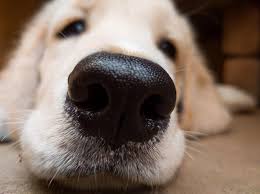Will a little garlic powder hurt a dog? 1 clove of garlic = 1/4 teaspoon powdered garlic.
That small measurement makes garlic powder incredibly toxic for your dog. As little as 15 grams per kilo of body weight (that’s half an ounce per 2.2 lbs) will cause harmful changes in your dog’s blood supply.
How much garlic powder is safe for dogs? According to Gregory Tilford in Herbs for Pets: The Natural Way to Enhance Your Pet’s Life, dogs can safely consume 1/8 teaspoon of garlic powder per pound of food 3-4 times per week.
Can dogs have things with garlic powder? Can Dogs Eat Garlic Powder? A small amount of garlic powder should not cause any issues, but an entire container will. However, to stay on the safe side, you should avoid feeding your four-legged friend table scraps seasoned with garlic powder.
Why is garlic powder in dog food? Basically, garlic helps to keep your dog free from all sorts of nasties: it is an effective anti-fungal and anti-bacterial, it helps to eliminate intestinal worms and it acts as a deterrant to skin parasites like ticks.
Will a little garlic powder hurt a dog? – Additional Questions
What if my dog ate garlic?
If you suspect your dog has eaten garlic, take them to the emergency veterinary hospital as soon as possible. They’ll be able to safely make your dog vomit and monitor for signs of anemia. This should occur immediately after intake.
How long after eating garlic will a dog get sick?
Clinical Symptoms of Onion and Garlic Poisoning in Pets
Clinical symptoms typically develop within 24 hours, but they can be delayed for up to 7 days after the food has been ingested.
Why is there onion powder in dog treats?
Onions contain chromium, which assists in regulating blood sugar, benefiting pets with diabetes. They’ve also been used to reduce inflammation and heal infections.
Does garlic help with fleas on dogs?
Veterinarians tell us that garlic does not protect dogs from fleas or ticks. They have found, however, that garlic and onions may cause dangerous anemia in dogs (Journal of Veterinary Medical Science, April 2010). It is not worth the risk.
How much garlic and onion powder is toxic to dogs?
Garlic and onions, as well as other plants of the Allium species (leeks, chives) in either fresh, dried, or powdered forms are toxic to both dogs and cats. Garlic is more toxic than onions – with raw garlic, toxic ingestion is around 1 gram per 5 pounds, and with onions it is 1 gram per pound.
What seasonings are good for dogs?
Safe Herbs and Spices for Dogs
- Anise (Anise seeds, not Star Anise)
- Dill.
- Ginger.
- Parsley.
- Peppermint.
- Rosemary.
- Sage.
- Turmeric.
Can dogs have tomatoes?
Dogs can eat tomatoes but only in small amounts. Ripe tomatoes are considered nontoxic to dogs and can be fed in moderation as an occasional snack.
Can dogs eat cheese?
Yes, dogs can eat cheese. In fact, cheese is often a great training tool, especially for puppies.
Can dogs eat potatoes?
White potatoes belong to the nightshade family of vegetables, which includes tomatoes; like tomatoes, raw potatoes contain solanine, a compound that is toxic to some dogs. However, cooking a potato reduces the levels of solanine. If you do feed your dog a potato, it should be baked or boiled, with nothing added to it.
Can dogs eat popcorn?
So is it safe for dogs to eat popcorn? Yes and no. Plain, air-popped popcorn is safe for dogs to eat in small quantities. Buttered popcorn or popcorn with other toppings is not safe for your dog on a regular basis, although eating a few dropped pieces here and there probably won’t hurt him.
Is broccoli good for dogs?
Broccoli is high in fiber and vitamin C and low in fat. It is safe for dogs to eat, raw or cooked, as long as no seasonings are added.
Can dogs eat pasta?
Dogs can eat plain white rice or pasta after it’s cooked. And, a serving of plain white rice with some boiled chicken can sometimes make your dog feel better when they are having stomach problems.
Can dogs eat ice cream?
Dogs Don’t Digest Milk Well
Eating ice cream may cause your dog a stomach ache or worse, depending on how sensitive they are. Ice cream can cause your dog gas, bloating, constipation, diarrhea or vomiting.
What fruits can dogs not have?
What Fruits Are Not Good for Dogs?
- Avocado. This fruit contains persin, a toxin that makes dogs throw up and have diarrhea.
- Cherries. Cherry pits contain cyanide.
- Grapes. Grapes can cause sudden kidney failure in dogs.
- Tomatoes. The green parts of the tomato plant have solanine, which is toxic to dogs.
What meat should dogs not eat?
Bacon, Ham and Fat Trimmings
Bacon, bacon grease, ham, and fat trimmed off meat or bones contains a lot of salt and/or fat and at the least can cause indigestion, vomiting, and diarrhea in both dogs and cats. These foods can also cause pancreatitis, a serious, potentially deadly inflammation of the pancreas.
What 3 ingredients should you never give your dog?
3 Ingredients You NEVER Want to See In Your Dog’s Treats
- #1 – Corn, Wheat & Soy. We’ve lumped these together because they’re fairly interchangeable.
- #2 – Meat Meals & By-Products. These might sound healthy because they come from meat, but they are not exactly what you’d expect.
- #3 – Preservatives.
What is the healthiest food to feed your dog?
10 Superfoods for Dogs
- Kale. This supercharged leafy green contains loads of vitamins, including A, E, and C.
- Carrots. Crunchy and naturally sweet, carrots are loved by most dogs.
- Pumpkin.
- Sweet Potatoes.
- Fish.
- Nori (dried seaweed)
- Chia seeds.
- Quinoa.
